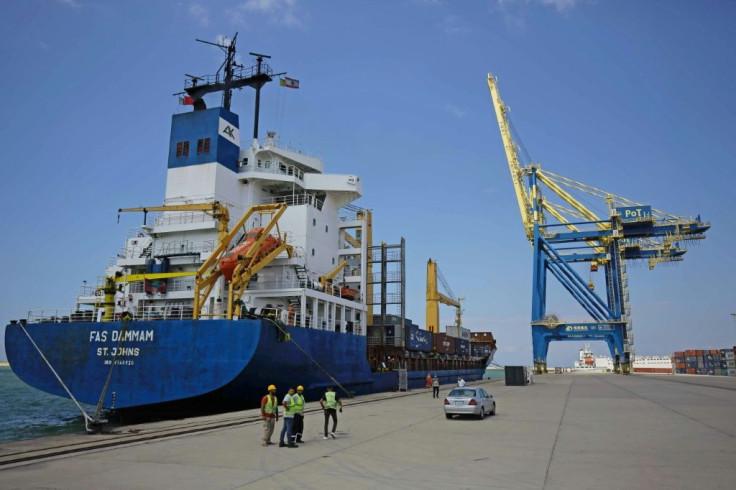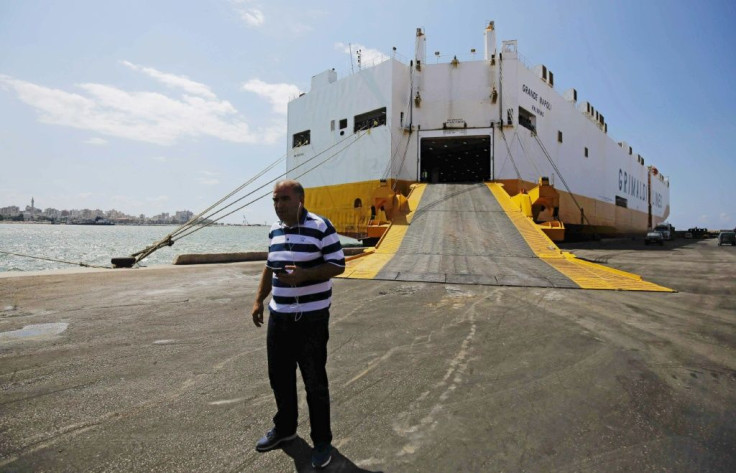Lebanon's Tripoli Port Readies To Fill In For Blast-hit Beirut
Lebanon's northern city of Tripoli is readying its port to temporarily replace that of Beirut and ensure urgently needed food deliveries, officials said Thursday, after the capital's harbour was levelled in a massive explosion.
Tripoli port's capacity is smaller than Beirut's, through which the vast majority of Lebanon's food and other imports used to transit.
A fire at Beirut port on August 4 spread to a huge stockpile of ammonium nitrate, causing a gigantic explosion that devastated swathes of the city and killed at least 171 people.
Immediately after the disaster, Lebanon's Supreme Defence Council ordered that the port of Tripoli be set up for "import and export operations".
"The port of Tripoli can stand in for Beirut on a temporary basis, for the time it will take it to be operational again," Tripoli port director Ahmad Tamer told AFP from his office at the harbour.

Tripoli port employees are working 18 hours a day to respond to the emergency needs and the sprawling compound is busier than it has ever been.
The smaller ports of Saida and Tyre can also contribute to the effort but their capacity is limited and does not allow for bigger vessels to dock.
Lebanon relies on imports for 85 percent of its food needs and the UN's World Food Programme has warned that the destruction of the main port could worsen an already alarming situation.
Lebanon's economic collapse in recent months has seen it default on its debt, plunged the local currency into free-fall and sent poverty rates soaring, on top of the country's COVID-19 outbreak.

Tamer said seven ships that had been heading to Beirut on the day of the explosion were immediately rerouted to Tripoli, where they unloaded their cargo.
Tripoli had already undergone major upgrade works in order to accomodate increased traffic expected in connection with the reconstruction effort needed in neighbouring, war-ravaged Syria.
Tamer said that before the explosion Tripoli port was only functioning at 40 percent capacity, processing two million tonnes of imports per year, with a maximum capacity of five million.
The port director said that he wanted to increase the rate of work at the port and hire more employees to boost its current turnover of 80,000 containers a year.
The huge silos at Beirut port are still partially standing but unusable, with one side of the towering structure completely gutted by the explosion.
Tamer said plans for new silos in Tripoli were now being discussed.
"A country with no grain silos can easily go hungry," he said.
The United Nations and several countries have sent thousands of tonnes of wheat and other commodities since the disaster to prevent a shortage of bread in Lebanon, where public anger against the government has boiled over into street protests.
Ships carrying emergency aid are still able to sail to Beirut and unload aid, usually with the help of the military.
According to the ministry of economy, 12 out of the port's 16 cranes are still operational and some ships have continued to unload in some of the least damaged parts of the port.
Media reports suggest that several countries have already expressed interest in rebuilding Beirut port, including China, France and Turkey.
© Copyright AFP 2024. All rights reserved.





















